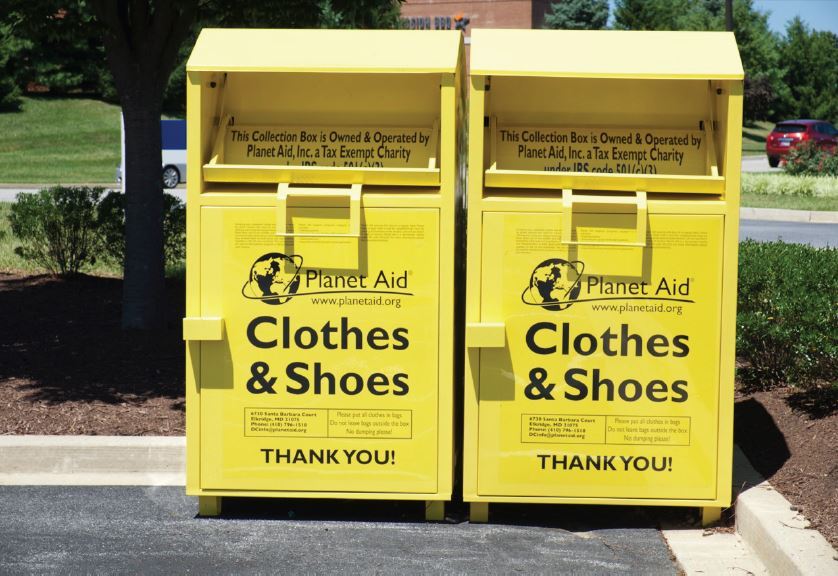In Planet Aid v. City of St. Johns, 782 F.3d 318, (6th Cir. 2015), a federal appeals court ruled that unattended charitable bins are a form of expression protected by the First Amendment and a St. Johns, Michigan, ban on such bins likely violates the First Amendment.
St. Johns banned unattended charitable donation bins
The dispute began shortly after Planet Aid, which solicits clothing and shoes donations through its bins, placed two bins in two locations with the permission of the property owners. City officials confiscated the bins and later passed an ordinance prohibiting unattended, charitable donation bins. The ordinance read: “No person, business or other entity shall place, use or allow the installation of a donation box within the City of St. Johns.”
Charity alleged a violation of First Amendment rights
Planet Aid sued, alleging a violation of its First Amendment rights. A federal district court granted the organization a preliminary injunction preventing the city from enforcing the law. The city appealed to the Sixth U.S. Court of Appeals, arguing that the ordinance was necessary to preserve aesthetics and to prevent nuisances.
Court said donation bins were entitled to First Amendment protection
The Sixth Circuit explained that the donation bids were a form of charitable solicitation entitled to significant First Amendment protections under the U.S. Supreme Court’s decision in Village of Schaumburg v. Citizens for a Better Environment (1980).
Court said ordinance was content based
Next, the panel analyzed whether the ordinance discriminated against the group’s speech based on content. According to the Sixth Circuit, the ordinance is content based, because it banned only the unattended bins of charitable organizations not all unattended receptacles, such as “dumpsters, receptacles at recycling centers, and public and private trash cans.”
Court said ordinance was not narrowly tailored
The Sixth Circuit also ruled that even if the city had a compelling interest in aesthetics, the ordinance was not narrowly tailored. “The ordinance preemptively and prophylactically prevents all charities from operating outdoor, unattended donation bins within the City in the interest of aesthetics and preventing blight,” the appeals court wrote. “This implies, without any evidence, that charities would be negligent in failing to conduct timely pickups of donated goods, in maintaining the appearance of the bins, etc. Further, it assumes that lesser, content neutral restrictions such as requiring weekly or bi-weekly pickups or inspections of all outdoor receptacles would be ineffective.”
The appeals court concluded that the lower court was correct in issuing a preliminary injunction prohibiting enforcement of the ordinance.
David L. Hudson, Jr. is a law professor at Belmont who publishes widely on First Amendment topics. He is the author of a 12-lecture audio course on the First Amendment entitled Freedom of Speech: Understanding the First Amendment (Now You Know Media, 2018). He also is the author of many First Amendment books, including The First Amendment: Freedom of Speech (Thomson Reuters, 2012) and Freedom of Speech: Documents Decoded (ABC-CLIO, 2017). This article was originally published in 2017.

